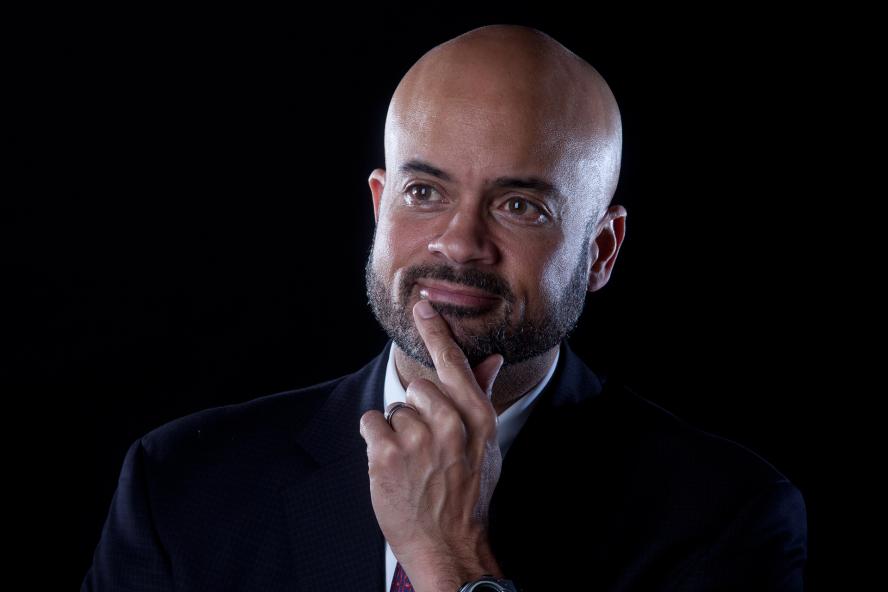From Tufts to Chief Executive Philosopher

By Ariana Hajmiragha
Some call the university an ivory tower. Mark Goodman, AG94, President and CEO of Colorado Nut Company and graduate alumnus of the philosophy program at Tufts Graduate School of Arts and Sciences, could not disagree more. “When it comes to philosophy, the world runs in large part on arguments – whether it’s a New York Times editorial, a feature on MSNBC or Fox News, or a lecture on campus,” he says. “The ability to present, articulate, have a well-crafted set of data, facts, premises, perhaps even insights, that are part of an overall story is critical.” Goodman traces these abilities back to his graduate education at Tufts.
Goodman’s integration of his academic passions with his professional life is the scaffolding to his dynamic post-graduate career. In fact, he characterizes his professional career as “my own analytic philosophy laboratory where I can apply my skills in a corporate setting.” Goodman’s conscious effort to center philosophy has opened many doors that he otherwise may not have considered.
“I took my first philosophy course in undergrad and it just lit a light bulb in me,” Goodman says. Departing from his intended major of political science, he pursued his new-found interest in philosophy. His intellectual passions brought him to Tufts, home of one of the top-rated philosophy master’s programs in the country for over three decades. But, Goodman never lost interest in applying philosophy to daily life. He explains, “with philosophy you can think about the meaning of life, but also about practical things that impart meaning on the world.”
Goodman links applied and theoretical philosophy on a daily basis to address challenges in the corporate world. “One of the things that my bosses in the past have wanted is people who could think critically and analytically, which is why I’ve been tapped on the shoulder,” he says. Goodman has relied on his graduate school training in jobs ranging from senatorial senior aide to executive-level positions at McDonald’s and Wal-Mart. “Some of the assignments I was given tended to have some ‘hair’ on them,” he says. “They had some problem that was lingering that hadn’t been figured out, or had multiple complexities of associated issues.”
How was Goodman able to tackle such complex problems? Through the skills he gained from his graduate education at Tufts. “You’re trained to think through multiple premises and arguments that have to coalesce into something by the end.”
In retrospect, he identifies the “soft skills” that a graduate education teaches as the distinguishing factor in his career. These skills include placing an emphasis on both the qualitative and the quantitative, being able to engage in critical analysis, and working as a leader within a group. “If I’m writing an argument about why McDonald’s should do something, the topic is different than, say, Socrates, but the work is similar: you have to put together a cogent set of data, facts, and premises, which lead to a logical conclusion that someone would believe,” Goodman notes. “It’s not unlike academics.”
These soft skills are invaluable across virtually all industries, although some may not realize it. “Sometimes the assumption is built-in that you have to have an MBA or that kind of degree to do certain kinds of jobs,” Goodman says. “I’ve certainly come across that in some areas, and I’ve found myself having to distinguish myself just by doing the work. I was the person who was asked to take over after those folks had messed these things up!”
But Goodman has never doubted the almost universal applicability of philosophy and his graduate education. “When someone says ‘oh, gosh, what can you do with that,’ if you step back and look at how the world runs, you see it’s everywhere,” he says. Beyond the corporate world, he sees the necessity of critical thinking in the complex issues facing the universities on whose boards of advisors he serves, including Tufts School of Arts and Sciences. Serving as a board member is his way of honoring the centrality of higher education to his life. He feels that it is important to give back.
No matter the situation, Goodman centers the application of theory to practice. “That’s something I’ve continued to emphasize: keep up on the applied level and at the individual or reflective level.” Whether he is addressing the issues facing universities today or building strategies for his business, Goodman maintains a balance. This helps him to be as effective as possible and to bring his intellectual passions to all that he does. For in a world that runs on well-constructed arguments, the critical thinking skills of graduate education can be applied everywhere you look.